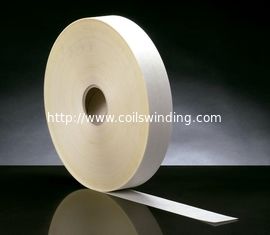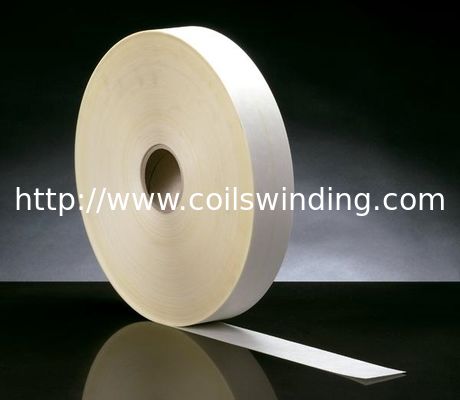|
|
Insulation Material For Motor Slot Insulation Paper DMD,NMN,PMP
| Highlight: | slot cell forming,Indution motor stator slot insulation,insulation paper forming |
||
|---|---|---|---|
Insulation Material For Motor Slot Insulation Paper DMD,NMN,PMP
DMD, NMN,PMP, ect kinds of motor slot insulation, insulation paper pass the testing of Thickness Tolerance,tensile strength,breakdown voltage, bonding (adhesive) property in heating status 150±2℃/10min, with good quality, Usually used as slot liner,slot closure,phase and turn-to-turn insulation.
The insulation class defines what kind of material is being used according to temperature operation. Standard motors are manufactured according to Isolation B.
For the insulation class and temperature, please refer to below table,
Insulation class A E B F H
Max Tem(℃) 105 120 130 155 180
Winding rise Tem(K) 60 75 80 100 125
Performance(℃) 80 95 100 120 145
For example, when customer use insulation paper (polyester) DMD,PMP or other insulation material such as powder, varnish they could consider the motor's insulation class accordingly.
Covering pumps,compressor,dries,exhausters,transporters,mixers,grinder,mills,fan and other kinds of motors.
Below is the test report the DMD paper
![]()
The insulaiton materials are mainly used as a slot liner,slot closure,phase and turn-to-turn insulation in low or medium voltage electrical motors.Besides it is also used as interlayer insulation in transformers and other electrical appliances.
Electrical Insulation - Wiring, Sleeving & other Electrical Sheilding Products. These products are used in electrical applications to insulate high voltage current from surrounding areas. These products are typically known for dielectric strength, arc resistance, thermal performance and insulating properties. Common applications include dry and oil-filled transformers, switch gears, relays, wire wrap, welding apparatus, electrical fixtures, commercial & residential electrical, lighting systems and more. These products are known for their ability to insulate electrical current, withstand mositure and corrosion, and resist arc and flame. Many of these materials can serve as practical and safe insulators for low to moderate voltages (hundreds, or even thousands, of volts).
Contact Person: Ms. Emily
Tel: 86-18019121458
-
Slot Cell Folding Machine Electric Motor Stator Slot Cell Insulation Forming Nomex Cuffing Creasing And Cutting
-
Generator Stator Fiber Inserting Machine Polyester Slot DMD PET Cell Inserter WIND-100-SI
-
Constant Slot Stator Slot Cell Inserter Slot Insulation Paper Insulation Machine
-
Slot Cell Forming Insulation Forming Stator Slot Insulation Paper Cuffing Creasing And Cut
-
Induction Motor Pump Motor Stator Slot Cell Inserter Slot Insulation Paper Insulation
-
Slot Cell Forming Insulation Forming Stator Slot Insulation For 2 Pole Universal Motor Sta




